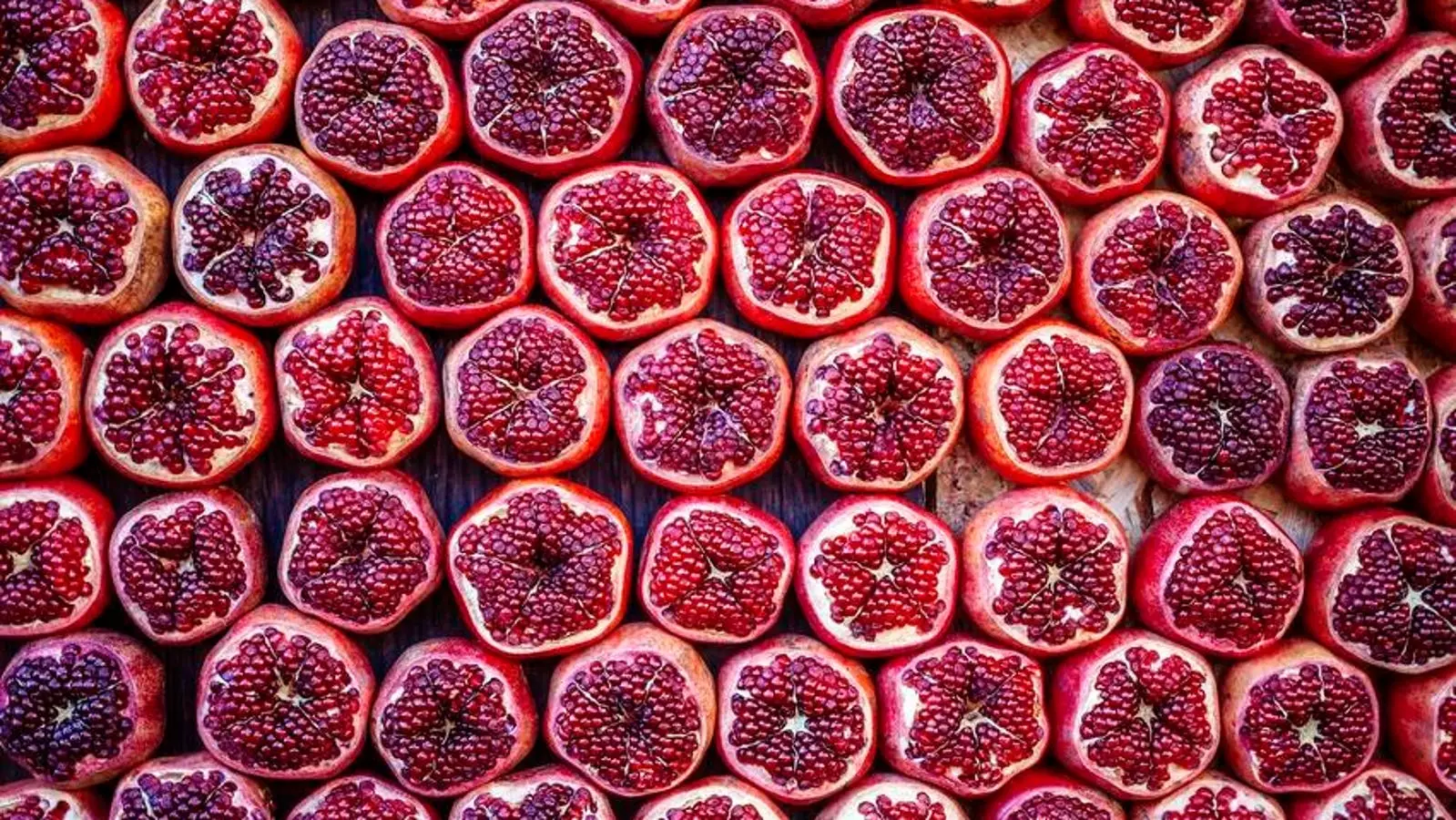Once regarded as a fruit of mythical origins, the pomegranate is redefining its place in contemporary society as a health food powerhouse and trendy ingredient. While many countries partake in the cultivation of pomegranates, Azerbaijan shines uniquely in its vibrant diversity and cultural significance. Imagine a fruit that not only nourishes but also embodies resilience and regeneration—qualities that are especially poignant in light of Azerbaijan’s recent history. This combination of health benefits and storied heritage is propelling the pomegranate into a major economic force, with its market value projected to reach $10.6 billion by 2033.
During a visit to Azerbaijan’s ethereal Nagorno-Karabakh region in the autumn of 2024, a seemingly simple fruit caught my eye amid the backdrop of a recently war-torn landscape. The pomegranate trees, remarkably vibrant and laden with red jewels, stood defiantly in a land still echoing the wounds of conflict. These symbols of life and persistence amidst challenges encapsulate the spirit of Azerbaijan, where the pomegranate, or nar, represents not merely a fruit but a profound connection between people, land, and tradition.
The Cultural Heartbeat of Azerbaijan
In Azerbaijan, the pomegranate is much more than a culinary delight; it is a cultural cornerstone. The fruit is celebrated through myriad festivals, local legends, and culinary traditions that have stood the test of time. “Nar Bayrami,” the Goychay Pomegranate Festival, showcases the richness of Azerbaijani culture, merging the artistry of folklore with the vibrant colors and flavors of pomegranate-infused dishes. This event, recognized by UNESCO for its contribution to the cultural tapestry of humanity, transforms Goychay into a lively celebration brimming with music, dance, and culinary innovation each autumn.
Rich in history and significance, the pomegranate has made its way into poetry, visual art, and everyday customs. No longer relegated to the status of a fruit, it has emerged as a powerful symbol of fertility, abundance, and continuity—qualities that resonate deeply both domestically and on the international stage. This speaks volumes about Azerbaijan’s unwavering connection to its roots in the face of modernization and globalization.
The Pinnacle of Terroir and Taste
When speaking of pomegranates, one cannot overlook the exceptional terroir of Azerbaijan. Notably, the Goychay region has gained acclaim as a premier source of pomegranates; its unique microclimate and mineral-rich soil create optimal conditions for growing over 60 indigenous varieties of this sought-after fruit. These varieties exhibit an array of flavors and textures, from tangy to sweet, while producers prioritize depth of flavor over mass production. This artisanal approach sets Azerbaijan apart from countries that focus primarily on yield and logistics.
What’s more, Azerbaijani farming practices often favor manual harvesting, ensuring that each pomegranate is picked at the peak of ripeness. This technique fosters the development of a complex, multi-faceted taste profile, culminating in a fruit that excels in both raw consumption and culinary applications. From the tangy narsharab syrup to innovative additions in dishes such as Nar Govurmasi—braised lamb cooked with pomegranates—Azerbaijan functions as a treasure trove of flavor.
The Power of Modern Marketing and Storytelling
As the global marketplace evolves, consumers increasingly seek out foods that provide not only nutritional benefits but also compelling stories. The rise of social media has propelled the pomegranate to celebrity status, with creative recipes trending across platforms like TikTok and Instagram. From pomegranate-infused chocolates to visually stunning salads, the fruit’s aesthetic appeal aligns perfectly with contemporary culinary sensibilities. Each viral recipe amplifies its visibility, fostering a renewed interest in traditional ingredients with deep cultural roots.
Azerbaijan’s burgeoning “Made in Azerbaijan” label aims to capitalize on this trend, promoting its artisanal, heritage-rich foods on the global stage. Recent statistics indicate a notable increase in exports, with over 2,278 tons of pomegranates worth more than $2 million exported in early 2025. This growing recognition reflects an increasing demand for quality over quantity, tapping into a consumer shift towards more meaningful and traceable food sources.
Facing Challenges with Resilience
Despite the promising trajectory, Azerbaijan’s pomegranate industry is not without its hurdles. Climate change poses threats to consistency in production, making regions like Azerbaijan—characterized by high-altitude, arid conditions—vital for sustainable cultivation. As the world grapples with shifting weather patterns and food security challenges, the country must remain proactive about protecting its agricultural heritage while adapting to new realities.
In an age where functional foods are lauded for their health benefits and authenticity, the humble pomegranate stands as a fascinating case study. It marries nutrition and tradition, offering an array of health advantages while serving as a narrative vehicle for cultural expression. Azerbaijan’s commitment to preserving its agricultural roots positions the pomegranate not just as a product for sale, but as an embodiment of national identity. In the burgeoning world of superfoods, Azerbaijan’s contribution is uniquely flavorful, promising an intertwined future of health, heritage, and resilience.

